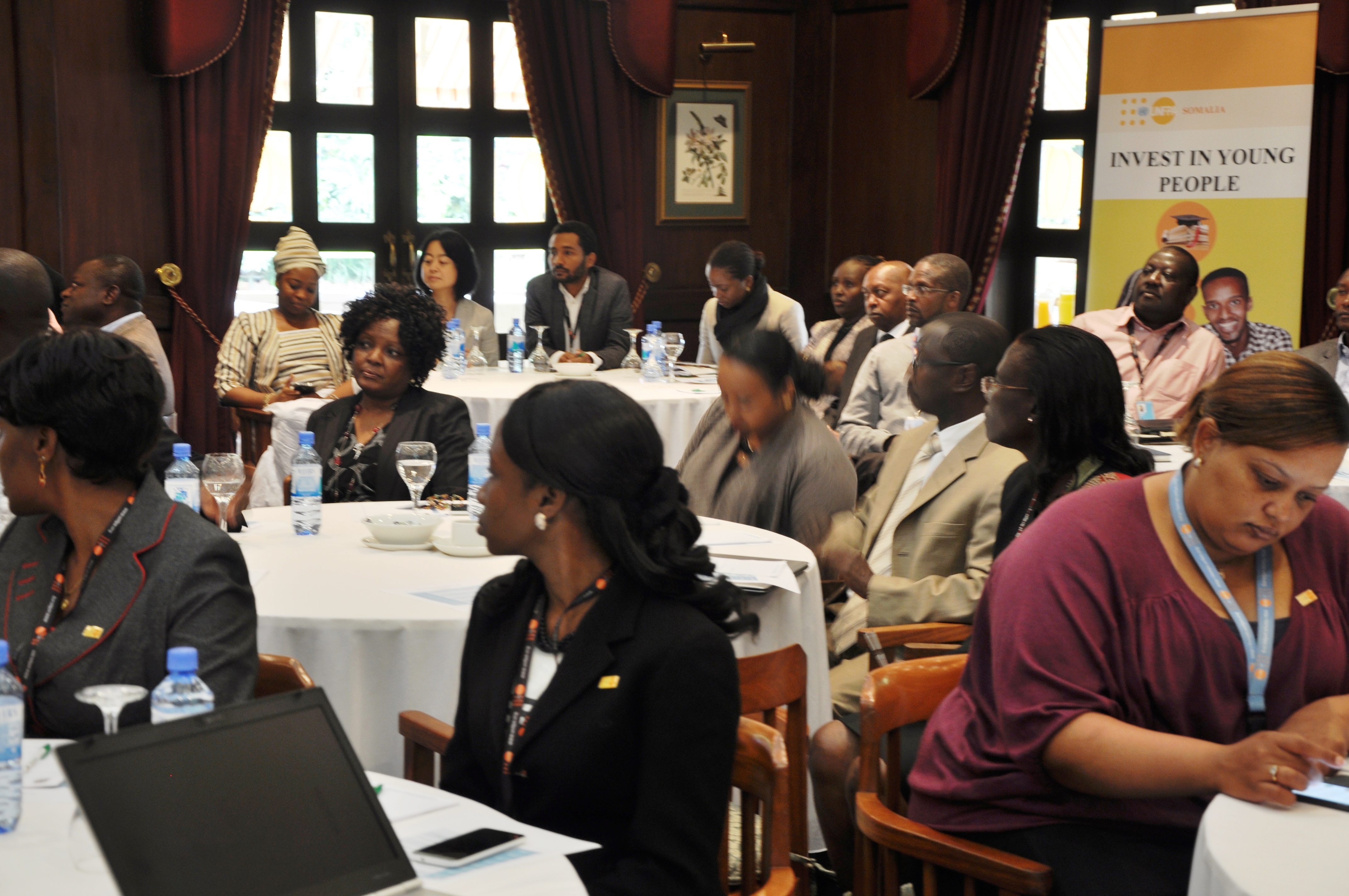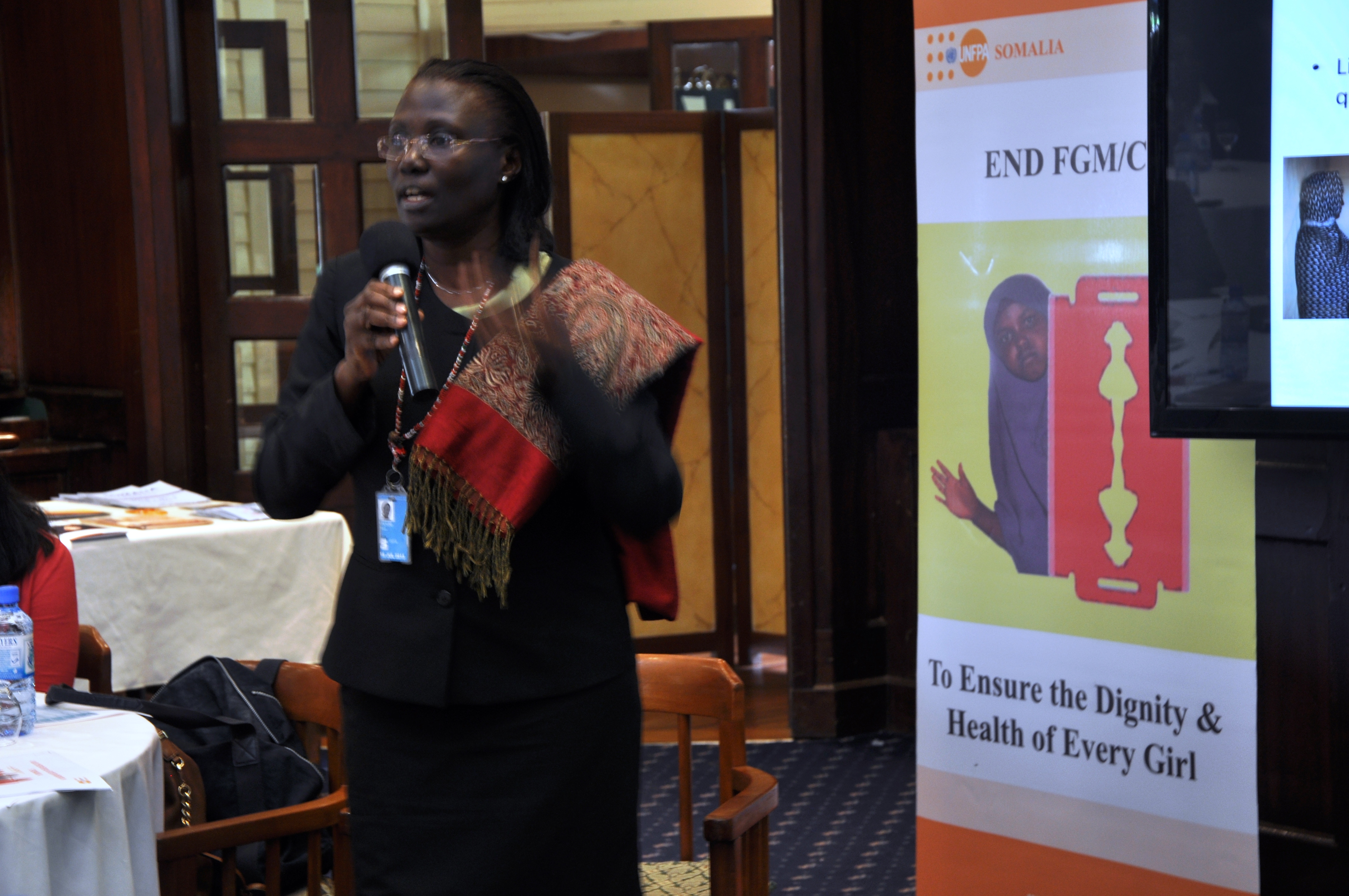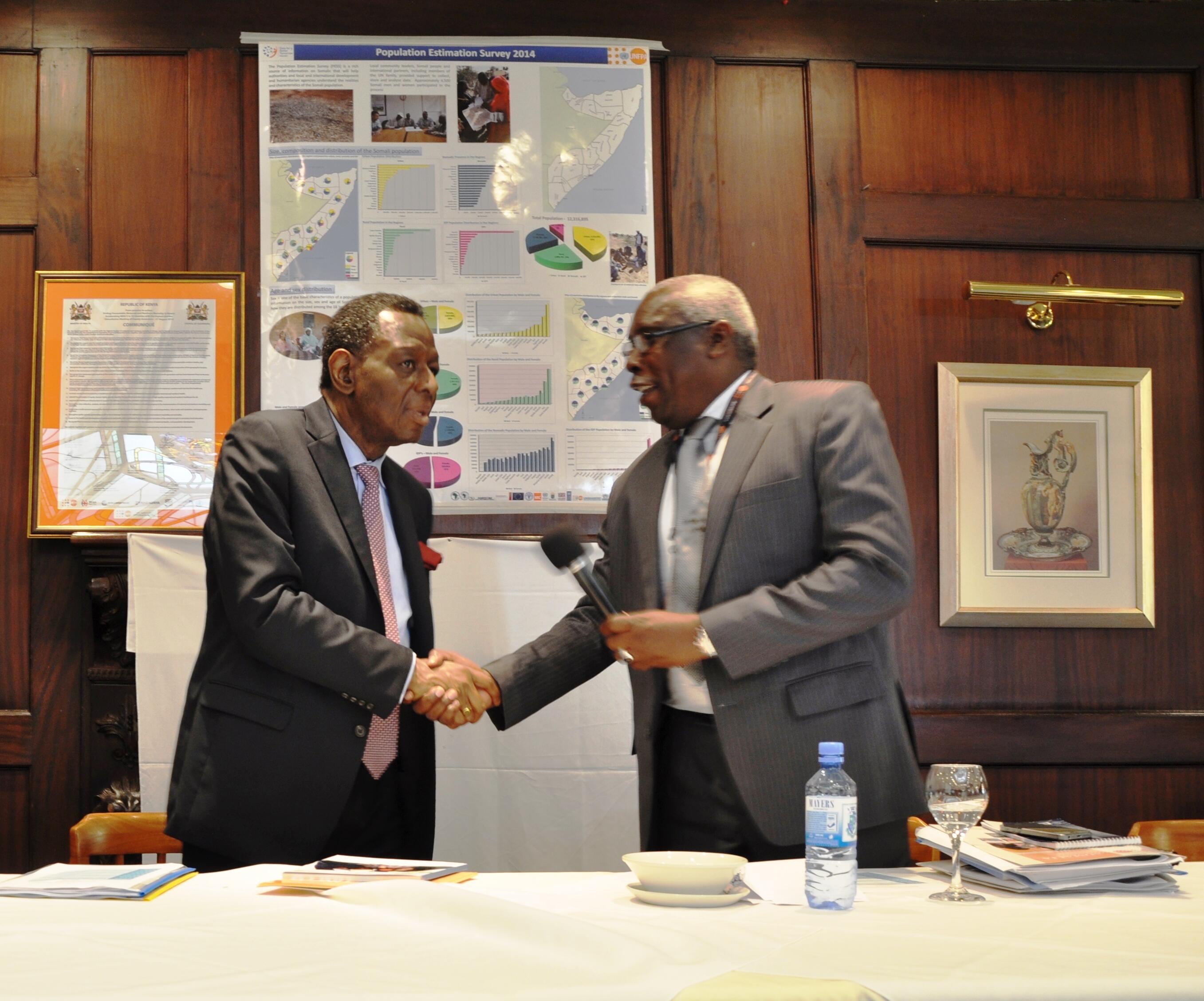Executive Director Dr. Babatunde Osotimehin visited Somalia, Mogadishu on October 29 where, among other undertakings, he met government officials who, he said, spoke highly of UNFPA and acknowledged the important role that the UNFPA Somalia country office is playing in contributing to improving the lives of Somali people.
Dr. Babatunde was part of the high level team led by the United Nations Secretary-General, Ban Ki-moon, and World Bank Group President, Jim Yong Kim, which visited Mogadishu to pledge support for Somalia's transition and for efforts to strengthen security and development across the wider Horn of Africa region.
The high level delegation met Somalia's President Hassan Sheikh Mohamud to discuss the country's transition and its critical importance to human security and economic prospects in the region. They also met Prime Minister Abdiweli Sheikh Ahmed, Speaker of the Federal Parliament Mohamed Osman Jawari, senior Government officials and representatives of Somalia's civil society.
"I felt proud when I visited Mogadishu because the authorities spoke highly of UNFPA. Members of the civil society also acknowledged the role of UNFPA in Somalia," said Dr. Babatunde.
He commended staff working for the Somalia country office for their dedication and hard work. Somalia continues to face political, security, development and humanitarian challenges from the over two decades of conflict, but recent advances, including the creation of regional administrations in close cooperation with the Federal Government, are bringing some degree of security and economic growth.
UNFPA Representative for Somalia Cheikh Tidiane Cisse expressed gratitude to the ED for visiting Mogadishu as this presented an opportunity to renew the commitment that UNFPA has taken to accompany Somalia in bringing change to people's lives.
Dr. Babatunde also took time to interact with staff from Somalia and Kenya country offices in Nairobi. He encouraged them to keep up the good work and went to spell out priorities that country offices should focus on as they continue to carry out UNFPA's work.

Dr. Osotimehin pointed out the priority areas as young people; especially adolescent girls, birth spacing, data for development and humanitarian response. He said the issue of young people should include tackling gender-based violence and ending early marriage, comprehensive family life education and youth-friendly services while data has to beyond supporting censuses to include strengthening civil registration systems and that humanitarian response has to be focused on protecting vulnerable women and girls from gender based violence and providing reproductive health services.
"We need to focus on the young people and work with them in everything that we do. Young people must be the driving force behind all our programmes," said Dr. Osotimehin. He explained that youth should be seen as the epitome of programming, because they are in majority as they form 70 percent of the population in many countries, adding that young people make up the demographic dividend which is an opportunity which, if properly utilised, should translate into higher economic growth for Africa.
The ED also said resource mobilization is another major issue that country offices should be concentrating on stating that resource mobilization is becoming more competitive, and the efforts need to take place more at the local level than global level with country offices engaging extensively private sector, bilateral donors, and government for co-financing.
UNFPA Deputy Representative for Somalia Ms. Grace Kyeyune explained to Dr. Babatunde how UNFPA is working in the country and the context in which the country office is working. She explained that key instruments being used include Somali Compact's Peace-building and State-Building Goals, Post-Transition Human Rights Road Map, National Action Plan on Sexual Violence in Conflict, Gender-Based Violence Strategy and the Integrated Strategic Framework.
"It is quite clear that there is a political will to address development and humanitarian issues. Somalia has a vibrant business community and has innovative approaches in technology and the donor community is interested in ICPD issues. There have been joint programming opportunities that have been tested and data is currently available for planning and policy formulation," said Ms. Kyeyune.

During his visit, Dr. Babatunde also participated in the launch of the Global Media Campaign against female genital mutilation (FGM) jointly organised by the UN and the Guardian Media Group. It was announced at the event that a joint UNFPA- Guardian International FGM Reporting Award will be granted annually to an African reporter who has demonstrated innovation and commitment in covering FGM.
The joint high level visit to Mogadishu comes at an important time for Somalia, which continues to make significant security gains against the Al-Shabaab insurgency, and is pushing forward essential political reforms with the goal of holding national elections in 2016. The delegation also included Islamic Development Bank President Ahmad Mohamed Ali and senior representatives of the African Development Bank, the African Union, and the European Union.


